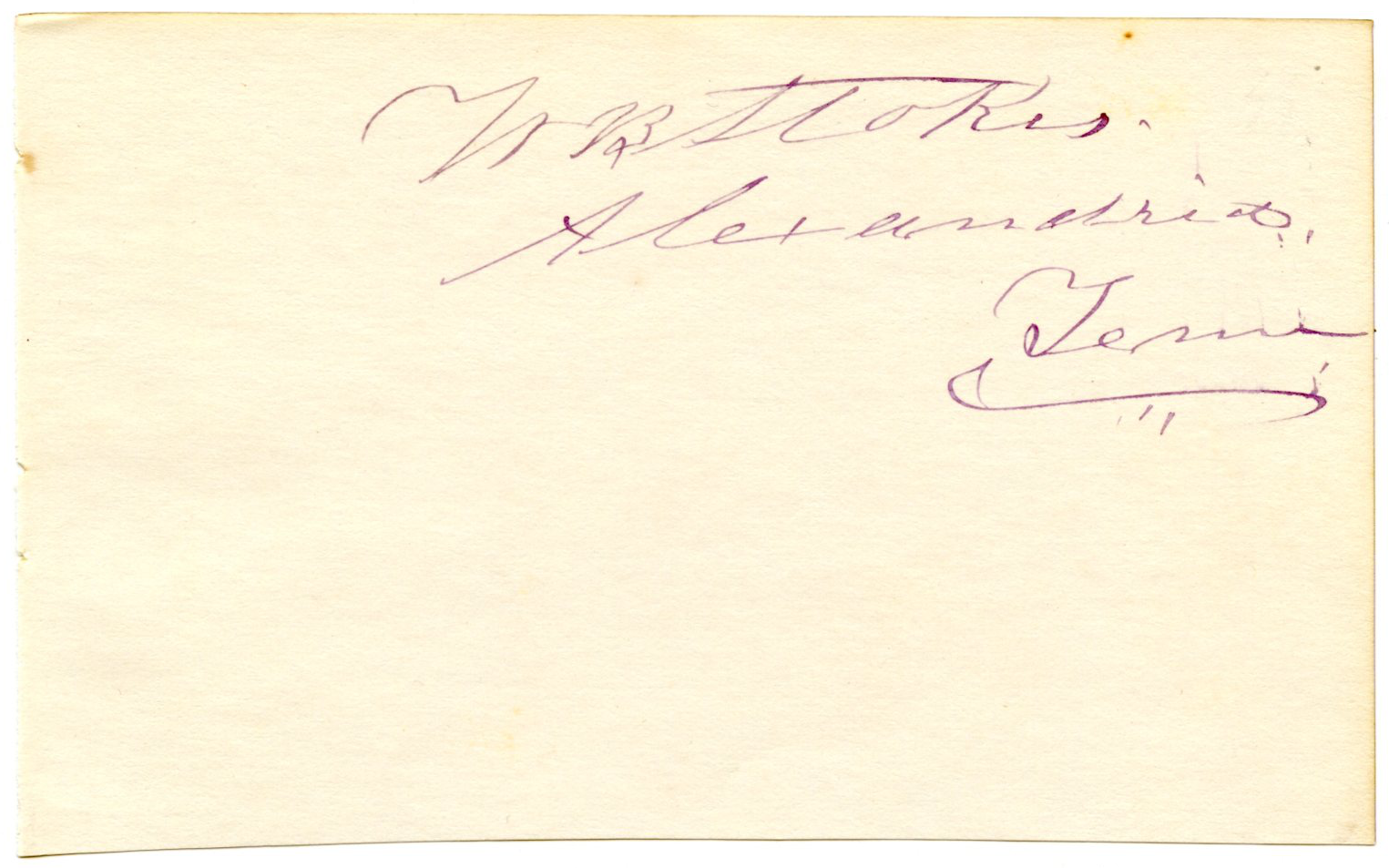Civil War
 McCOOK, DANIEL, JR. (1832-64) Union Brigadier General; Colonel of the 52nd Ohio Infantry; Mortally wounded at the Battle of Kennesaw Mountain – June 27, 1864
McCOOK, DANIEL, JR. (1832-64) Union Brigadier General; Colonel of the 52nd Ohio Infantry; Mortally wounded at the Battle of Kennesaw Mountain – June 27, 1864
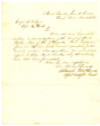
Civil War-Date Letter Signed
Letter Signed, 7 ¾” x 9 ¾”, an early-ear communication regarding supplies needed for the Seventh Brigade, under General James Negley.
“Head Quarters Second Division, Camp Wood [Kentucky], Dec[ember] 16, 1861.
Capt[ain] J.F. Boyd
As[sistan]t Q[uarte]r Master.
Sir,
I have the honor herewith to enclose, a memorandum of the wants of the Q[uarte]r Masters Dep[artmen]t of the 7th Brigade. Gen[era]l Negley informs me he has, made several requisitions for the articles, without obtaining them. You will please ereport to these Head Quarters why the articles have not been furnished.
I am Sir, very respectfully,
Your Obedient Servant,
Danl. McCook
As[sistan]t Adj[utan]t Gen[era]l.”
Lightly and evenly toned, with two horizontal folds, several light surface creases, and a few old paper and hinge remnants on the reverse.
 McKINSTRY, JUSTUS (1814-97) Union Brigadier General; Early-war Provost Marshal in St. Louis, Missouri; Dismissed from the service after conviction for graft, corruption, and fraud; Veteran of the Mexican & Seminole Wars
McKINSTRY, JUSTUS (1814-97) Union Brigadier General; Early-war Provost Marshal in St. Louis, Missouri; Dismissed from the service after conviction for graft, corruption, and fraud; Veteran of the Mexican & Seminole Wars
-100.png)
-100.png)
Document Signed, 4 ¾” x 7 ½”, St. Louis Missouri, September 4, 1861, “J. McKinstry,” accomplished in another hand, a partly printed pass for a “Mrs. Sarah McIntyre to pass beyond the limits of the City and County of St. Louis, to go to Ohio.”
A rare autograph on an interesting, seldom-seen form, this being the first McKinstry piece we have encountered. Moderate toning throughout, with several stains; heavier wear and soiling along two vertical folds, with negligible separation at the edges.
McLAWS, LAFAYETTE (1821-97) Confederate Major General – Georgia; Veteran of the Mexican & Utah Wars

Signature, with closing and rank, “Respectfully, L. McLaws, 2nd Lieut[enant] 7th Inf[antry]” on a 1” x 3 ¼” slip of paper removed from a Mexican War-era letter; affixed to a larger, heavier card. McLaws held the rank of Second Lieutenant in the Seventh U.S. Infantry from March 16, 1844 until February 16, 1847.
Moderately toned, with minor staining and soiling; closely clipped at the upper edge.
 MOORE, ANDREW BARRY (1807-73) Governor of Alabama – 1857-61; Alabama State Representative – 1842-45; Speaker of the Alabama House of Representatives – 1843-45
MOORE, ANDREW BARRY (1807-73) Governor of Alabama – 1857-61; Alabama State Representative – 1842-45; Speaker of the Alabama House of Representatives – 1843-45
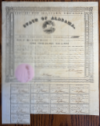
War-Date Confederate Bond
Document Signed, 14” x 17”, April 1, 1861, “A.B. Moore,” a partly printed $1000 bond “ISSUED FOR MILITARY DEFENSE” of the state of Alabama, serial number 314. Countersigned by State Comptroller W.J. Greene, with a pink embossed seal at the lower left. Thirteen of the original coupons remain attached at the bottom. Supporting material states that this issue is given the highest rarity rating of “R11” by Confederate Bond Authority Grover C. Criswell.
Lightly toned, with tiny holes at the intersections of the expected folds and a few small tears at the edges.
MORGAN, JAMES DADA (1810-96) Union Brigadier General; Early-war Colonel of the 10th Illinois Infantry; Veteran of the Illinois Mormon War & the Mexican War
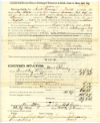
Civil War-Date Document - Pay for a 101st Indiana Infantry soldier who died one week later.
Document Signed, 8 ¼” x 10”, Nashville, Tennessee, May 30, 1863, “James D. Morgan, Brig[adier] Gen[era]l Commanding Post,” a partly printed “Certificate to be Given to Discharged Volunteers to Enable them to draw their Pay” for Merrill Ransey (possibly Ramsey), a private in the 101st Indiana Volunteer Infantry. Further described, “Disease contracted prior to enlistment,” Private Ransey died in Nashville on June 8, 1863, just one week later.
Lightly and evenly toned, with scattered staining; somewhat heavier wear at two horizontal folds.
MORGAN, JAMES DADA (1810-96) Union Brigadier General; Early-war Colonel of the 10th Illinois Infantry; Veteran of the Illinois Mormon War & the Mexican War
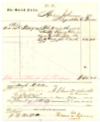
Civil War-Date Document Signed
Document Signed, 7 ¾” x 9 ½”, Chattanooga, Tennessee, December 24, 1863, “James D. Morgan, Brig[adier] Gen[era]l Com[man]d[ing],” a partly printed requisition for corn, in the amount of $35.00.
Lightly and evenly toned, with scattered staining, two horizontal folds, and a few small tears at the edges.
 POWELL, WILLIAM HENRY (1822-1904) Union Brigadier General; Colonel of the 2nd West Virginia Cavalry; Awarded the Congressional Medal of Honor for action at Sinking Creek Valley, Virginia – November 26, 1862
POWELL, WILLIAM HENRY (1822-1904) Union Brigadier General; Colonel of the 2nd West Virginia Cavalry; Awarded the Congressional Medal of Honor for action at Sinking Creek Valley, Virginia – November 26, 1862

Civil War-Date Autograph Letter Signed – from the Department of West Virginia
Autograph Letter Signed, 5 ½” x 7 ½”, responding to an autograph request from a noted Civil War-era collector.
“Head Q[uarte]rs 2nd Cav[alry] Div[ision] D[epartment] [of] W[est] V[irginia]. Front Royal, V[irgini]a, Nov[ember] 3rd 1864. Mr. C.L. Pascal, Philadelphia, P[ennsylvani]a. Sir, Your request bearing date Oct[ober] 22nd reached me this morning. Your request is hereby granted. I am dear Sir, Yours Respectfully, W.H. Powell, B[rigadier] G[eneral.”
Lightly and evenly toned; affixed to old heavier backing.
PRICE, STERLING (1809-67) Confederate Major General; Governor of Missouri – 1853-57; U.S. Representative – Missouri – 1845-46; Veteran of the Mexican & Missouri Mormon Wars
 9164-100.png)
 9164-100.png)
 9164-100.png)
PRICE, STERLING (1809-67) Confederate Major General; Governor of Missouri – 1853-57; U.S. Representative – Missouri – 1845-46; Veteran of the Mexican & Missouri Mormon Wars
MILLER, MADISON (1811-96) Union Brevet Brigadier General; Colonel of the 18th Missouri Union Infantry; Late-war Brigadier General in the Missouri State Militia; President of the St. Louis & Iron Mountian Railroad Company
Document Signed, 9 ¼” x 11 ¼”, Jefferson City, Missouri, October 27, 1856, “Sterling Price,” as Missouri Governor, a partly printed $1000 bond of the Saint Louis & Iron Mountain Railroad. Countersigned below by Missouri Secretary of State Benjamin Franklin Massey, along with Railroad President Madison Miller, future Brevet Brigadier General in the Union Army, on the reverse.
Significant trimming of the ornate original borders also affects the printed text on the reverse; some separation at the expected fold creases, with negligible loss of paper; all signatures are unaffected by cancellation holes and chipping at the edges.
 RANDALL, JAMES RYDER (1839-1908) Pro-Southern Poet & Journalist; Author of “Maryland, My Maryland,” thus known as the “Poet Laureate of the Lost Cause”
RANDALL, JAMES RYDER (1839-1908) Pro-Southern Poet & Journalist; Author of “Maryland, My Maryland,” thus known as the “Poet Laureate of the Lost Cause”

Signed Card, 3” x 4 ¾”, dated and inscribed, “James R. Randall, Augusta, G[eorgi]a. March 21, 1891. For Miss Louise Parkinson.”
Lightly and evenly toned, with several minor stains; bumping at the upper left corner; old mounting remnants on the reverse.
 RAWLINS, JOHN AARON (1831-69) Union Brigadier General - Illinois; U.S. Secretary of War – 1869
RAWLINS, JOHN AARON (1831-69) Union Brigadier General - Illinois; U.S. Secretary of War – 1869
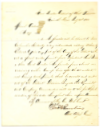
Civil War-Date Document Signed - General Grant banishes Prostitutes from the District of West Tennessee
Document Signed, 7 ¾” x 10”, a manuscript special order, signed by Rawlins as assistant adjutant general on behalf of Major General Ulysses S. Grant. The order explicitly bans the unauthorized travel of women from northern rail points to the army’s encampments, along with their presence in camp.
“Head Quarters District of West Tennessee.
Corinth, Miss[issippi], July 20th 1862.
Special Order
No. 139.
No females will be allowed to leave Columbus, Kentucky, or any intermediate railway Station by Railroad, to join any part of the Army of this District without a special written permit from Department Head Quarters or these Head Quarters. All females from abroad remaining within Camp lines after the 31st instant, not having such permits, shall be arrested and sent out of the District. Division, Brigade, Port, Regimental, and Company Commanders will see to the faithful execution of this order throughout their respective Commands.
By Command of Maj[or] Gen[eral] U.S. Grant.
Jno. A. Rawlins,
Ass[istan]t Adj[uta]nt Gen[era]l.
As early-war offensives made inroads into Confederate territory, both east and west, the occupying Union Army was inevitably followed by another, consisting of profiteers and opportunists of all types, including prostitutes. By this order, Grant intends to thwart the proliferation of prostitution among army personnel in the newly occupied regions of Tennessee, northern Mississippi, and Alabama, secured by the recent Union victory at the Battle of Shiloh.
Excellent, with light, even toning and two horizontal folds.
ROBERTS, BENJAMIN STONE (1810-75) Union Brigadier General; Veteran of the Mexican War

Signature & Rank, “B.S. Roberts, B[reve]t Brig[adie]r Gen[era]l U.S.A.,” on a 1 ½” x 4 ¾” slip of paper.
Excellent.
SCATES, WALTER BENNETT (1808-86) Union Brevet Brigadier General; Attorney General of the State of Illinois – 1836-37; Served as Chief Justice of the Illinois Supreme Court – 1855; Collector of Customs for the Port of Chicago – 1866-69
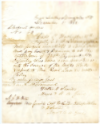
Civil War “Special Order,” directing a 13th U.S. Army Officer, mortally wounded at Vicksburg six months later, to report to Camp Butler
Document Signed, 8” x 10”, a manuscript special order, signed twice by Scates at the conclusion, directing 13th U.S. Infantry Captain Edward Crawford Washington, mortally wounded in the May 19, 1863 assault on Vicksburg, Mississippi, to report immediately to Camp Butler, near Springfield, Illinois, to enlist and pay bounty to the newly formed 128th Illinois Infantry.
“Head Quarters Springfield, Ill[inois], December 1, 1862. Special orders No. 63. Capt[ain] C. Washington, 13th Infantry, U.S.A. Disbursing Officer & c. Will proceed immediately to Camp Butler and pay bounty & premium to all the enlisted men of 128th Regiment Ill[inoi]s Infantry who have been mustered into the Service of the United States & report to these Head Quarters without delay. By order of Major General John A. McClernand. Walter B. Scates, Major & A[ssistant] A[djutant] Gen[era]l. L[ieutenan]t G.W. Hill Will furnish Capt. Washington transportation. W.B. Scates, Major & A.A. Genl.”
Exhibits the expected soiling, toning, and wear; water staining and clean separation, with no loss of paper, at the upper of two horizontal folds.
SCHENCK, ROBERT CUMMING (1809-90) Union Major General; U.S. Representative – Ohio – 1843-51 & 1863-71

Franking Signature, as a post-war U.S. Representative from Ohio, “Robt. C. Schenck, M[ember] C[ongress],” on a 1 ½” x 5 ¼” portion of an envelope, with portions of the recipient’s address in Schenck’s hand beneath and a Washington, D.C. postmark at left.
Irregularly torn at the lower and left edges.
SCHENCK, ROBERT CUMMING (1809-90) Union Major General; U.S. Representative – Ohio – 1843-51 & 1863-71

Signature, as U.S. Representative, “Robt. C. Schenck, Ohio,” on a 5 ¾” x 8 ¾” portion of an album page.
Excellent.
SEDDON, JAMES ALEXANDER (1815-80) Confederate Secretary of War – 1862-65; U.S. Representative – Virginia – 1845-47 & 1849-51
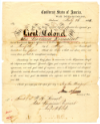
Appointing an Officer in the 61st Virginia Infantry
Civil War-Date Document Signed, on imprinted 8” x 10” Confederate War Department stationery, Richmond, Virginia, May 12, 1864, “James A. Seddon,” a partly printed appointment for William Henry Stewart to the rank of Lieutenant Colonel in the 61st Virginia Infantry. The unit was heavily engaged at the Civil War battles of Chancellorsville, Spotsylvania Court House, and Cold Harbor, Stewart being wounded at all three.
Lightly and evenly toned, with scattered stains and several chips at the corners and edges; there is a water stain at the lower left, well away from Seddon’s signature, and clean separation at two horizontal folds has been reinforced with archival tape on the reverse.
SHERIDAN, PHILIP HENRY (1831-88) Union Major General; Veteran of the Indian Wars; U.S. Army General – 1888; Commander-in-Chief of the U.S. Army – 1883-88

Signed Card, 2” x 3 ¼”, with rank, “P.H. Sheridan, L[ieutenan]t General, U.S.A.”
Excellent, with light, even toning and several small areas of very minor bleeding of ink.
 SMITH, GUSTAVUS WOODSON (1821-96) Confederate Major General; Veteran of the Mexican War
SMITH, GUSTAVUS WOODSON (1821-96) Confederate Major General; Veteran of the Mexican War
-100.png)
-100.png)
A West Point, New York Postmark
Autograph Letter Signed, 7 ¾” x 9 ¾”. As a young, antebellum U.S. Army officer, Smith communicates regarding the conveyance of funds. Addressed by Smith to a banking company in New Orleans, the integral leaf bears a desirable postmark from West Point, New York, home of the U.S. Military Academy, where Smith was at the time employed as an instructor.
“West Point, N[ew] Y[ork], Dec[ember] 20th 1850.
Messrs. Watts & De Saulles,
Gentlemen,
I received yesterday yours of the 9th Dec[ember], enclosing “original of J. Corning & Co[mpany]’s check on Corning & Co[mpany] New York,” dated Dec[ember] 9th No. 27089 in my favor for five hundred dollars, $500. I will in compliance with your request acknowledge the receipt of the same to M.A. Smith by this days mail.
Very Respectfully Yours,
Gus. W. Smith,
Capt[ain] U.S. Army.”
_________________________
Heavier staining and wear at the edges, with the expected folds and a few chips at the edges; there is significant wrinkling of paper in the lower corners and edges, all well away from the text of the letter.
SMITH, MORGAN LEWIS (1822-74) Union Brigadier General; Early-war Colonel of the 8th Missouri Infantry

Signature & Rank, “M.L. Smith, Brig[adier] Gen[era]l Vol[unteers],” on a ¾” x 2 ¼” slip of paper, probably removed from a war-date document. Affixed to slightly larger backing.
General soiling, staining, and wear.
STEPHENS, ALEXANDER HAMILTON (1812-83) Confederate Vice President; U.S. Congressman – Georgia – 1843-59 & 1873-82; Governor of Georgia – 1882-83
-100.png)
-100.png)
Franked Envelope, 3” x 5 ¼”, “Free, Alexander H. Stephens, M[ember] C[ongress],” also addressed by Stephens, to “John L. Stephens, La Grange, G[eorgi]a,” a recurring correspondent. Stephens was frail and frequently ill, even as a young man, this atypical signature being an obvious example from one of his unsteady periods.
General soiling and wear, with numerous small tears and breaks at the edges.
STOKES, WILLIAM BRICKLY (1814-97) Union Brevet Brigadier General; Colonel of the 5th Tennessee Cavalry; U.S. Representative – Tennessee – 1859-61 & 1866-71

Signature, as post-war U.S. Representative, “W.B. Stokes, Alexandria Tenn[essee],” on a 3” x 5” portion of an album page.
Lightly and evenly toned, with old binding traces at the left.

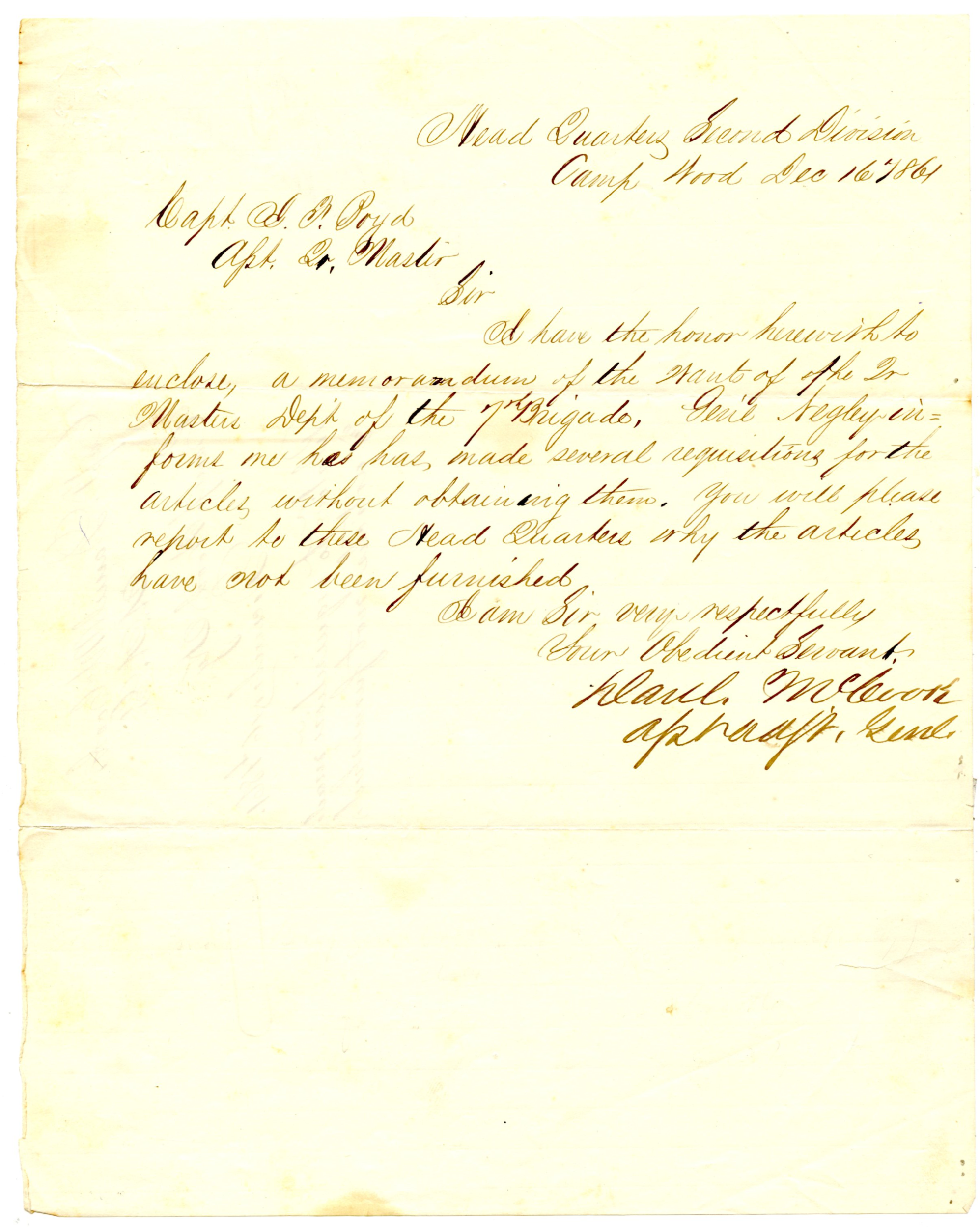
-1999.png)
-1522.png)
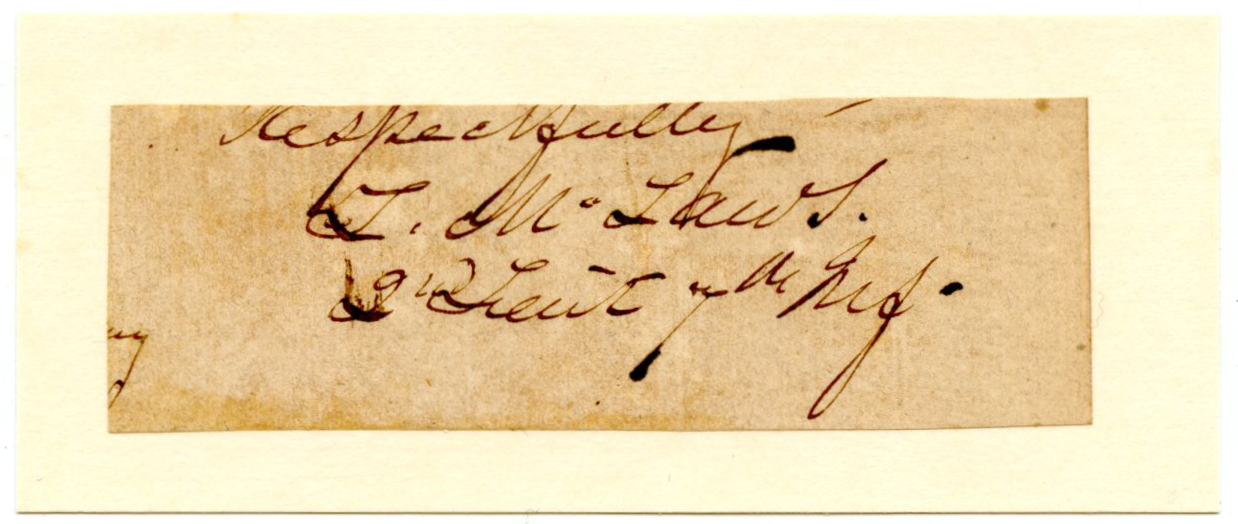
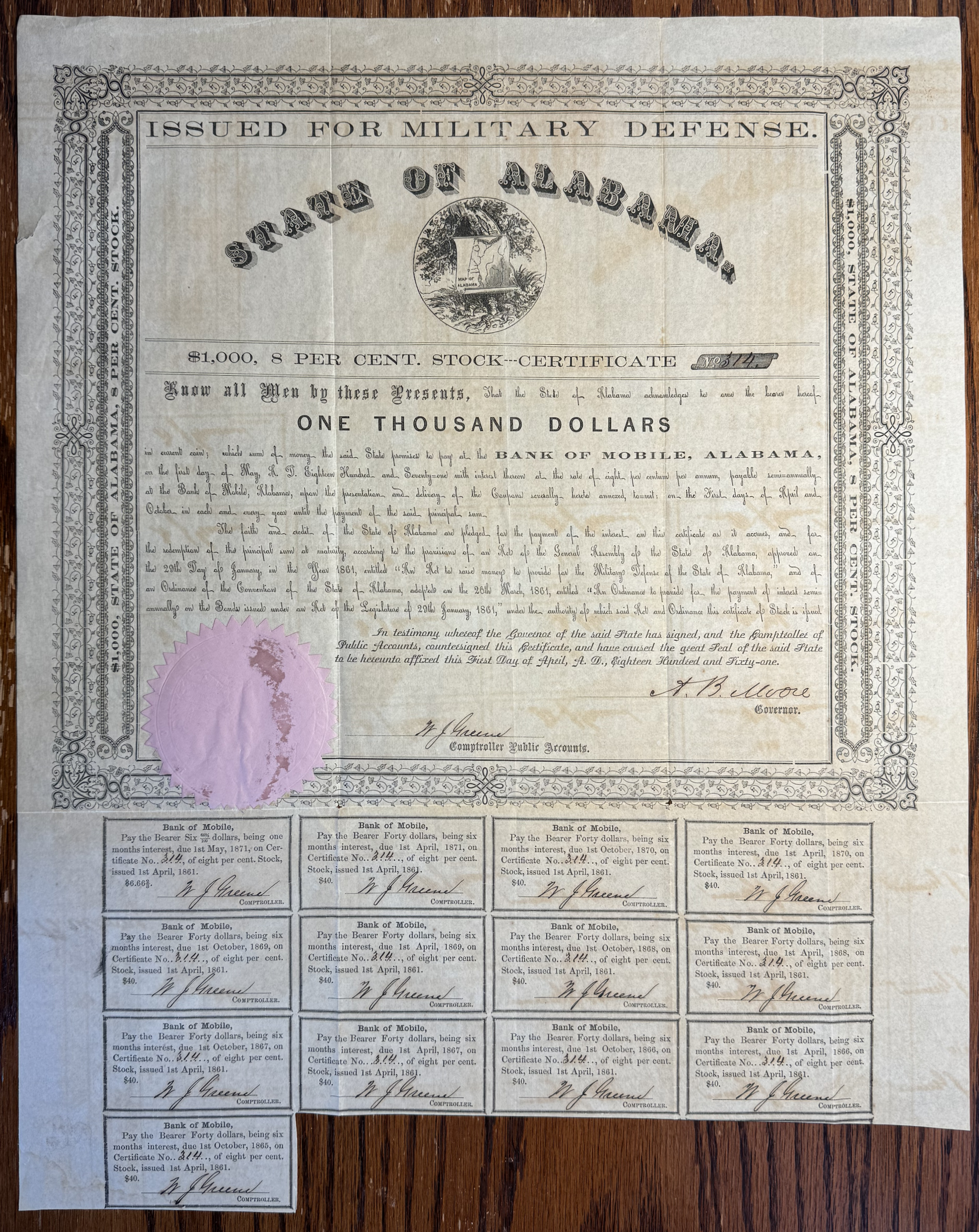
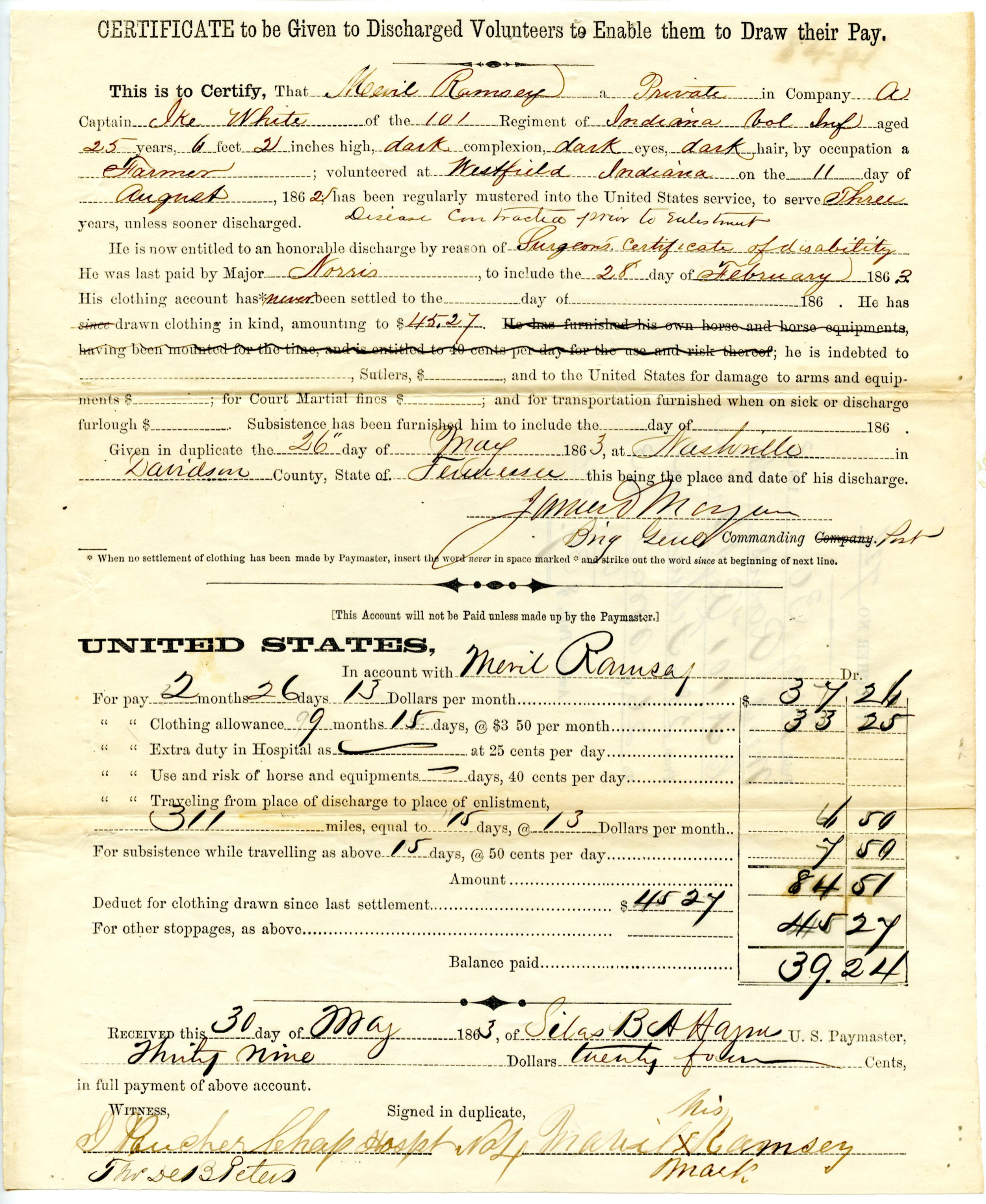
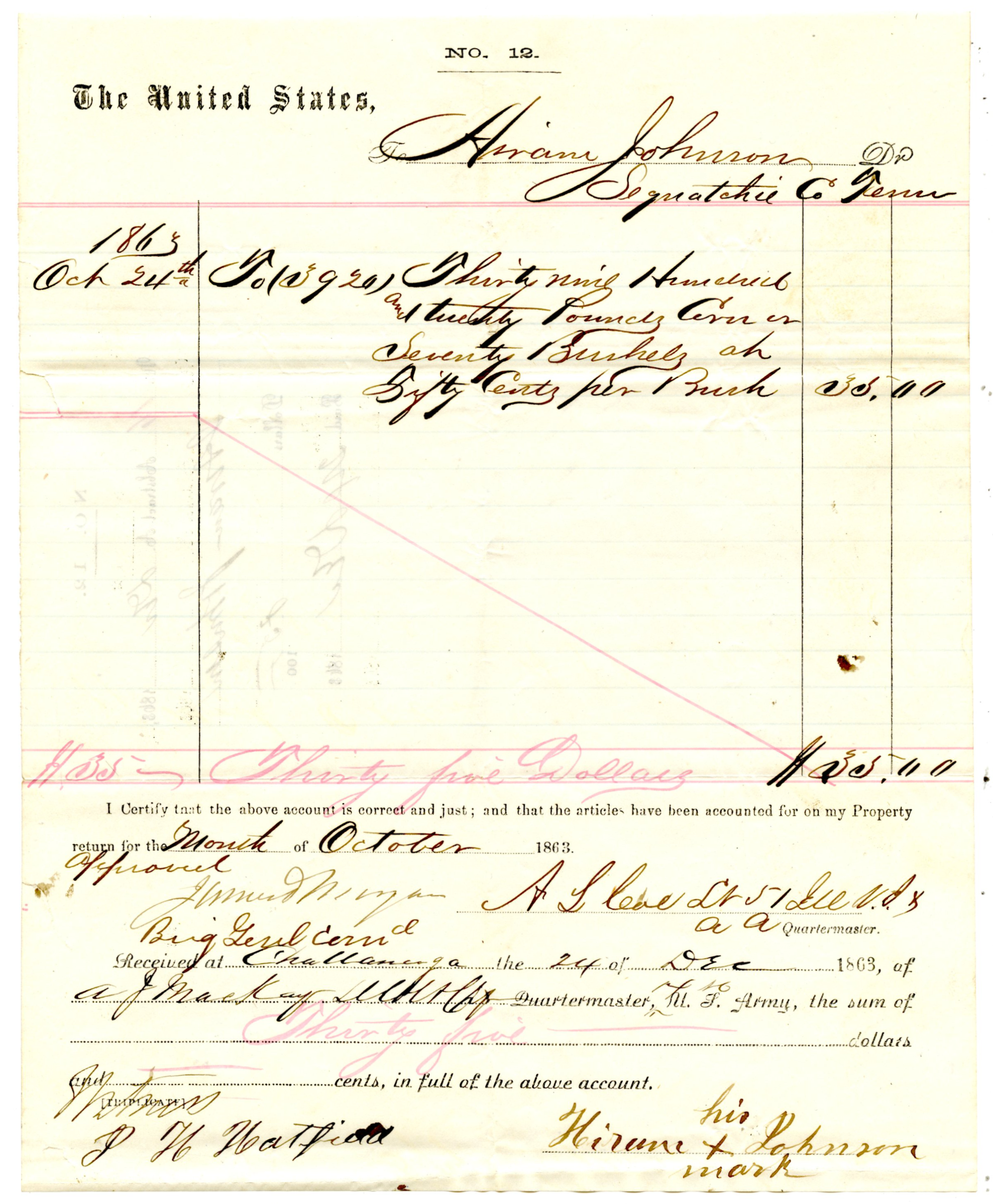
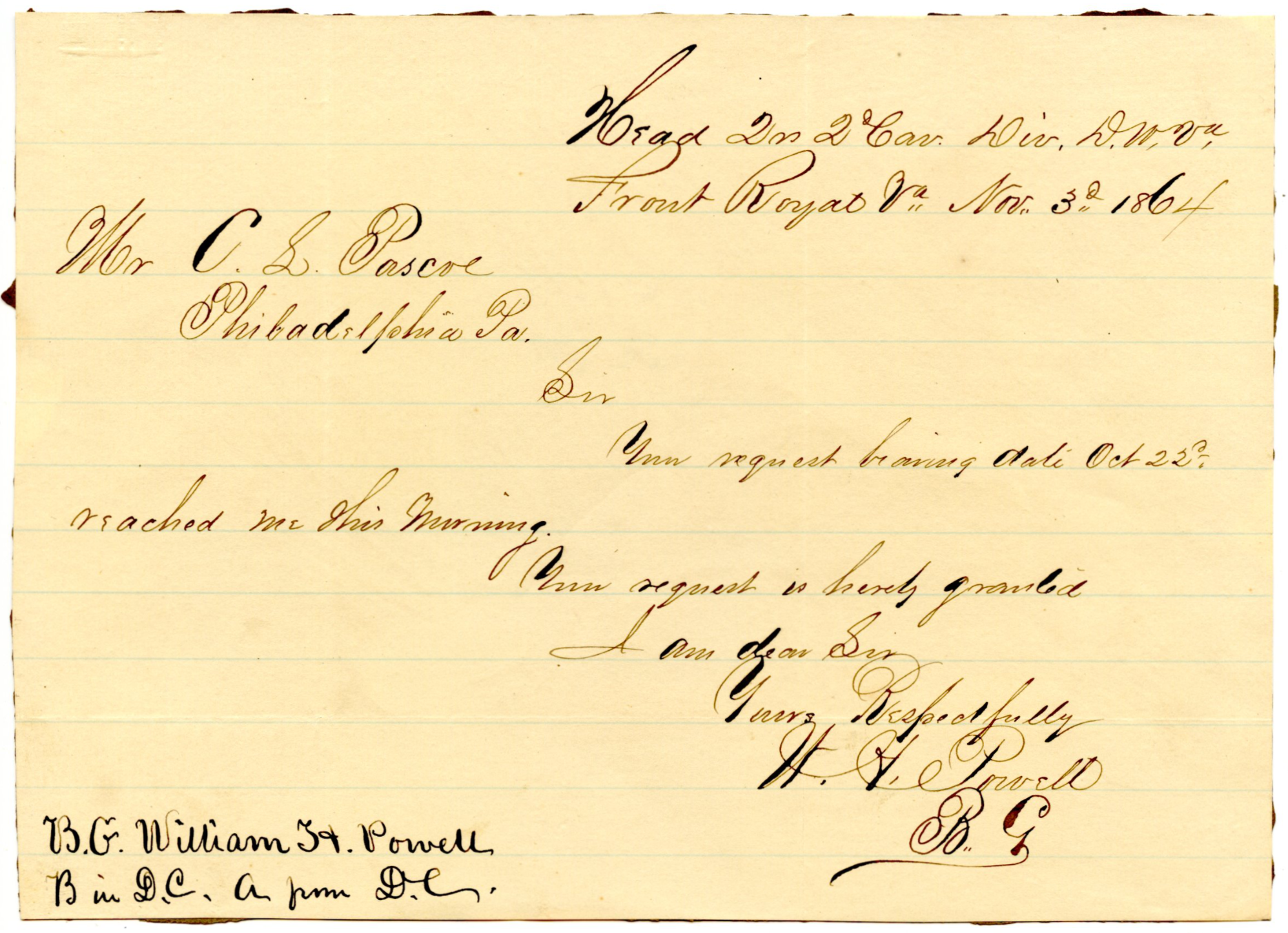
 9164-1995.png)
 9164-1995.png)
 9164-1995.png)
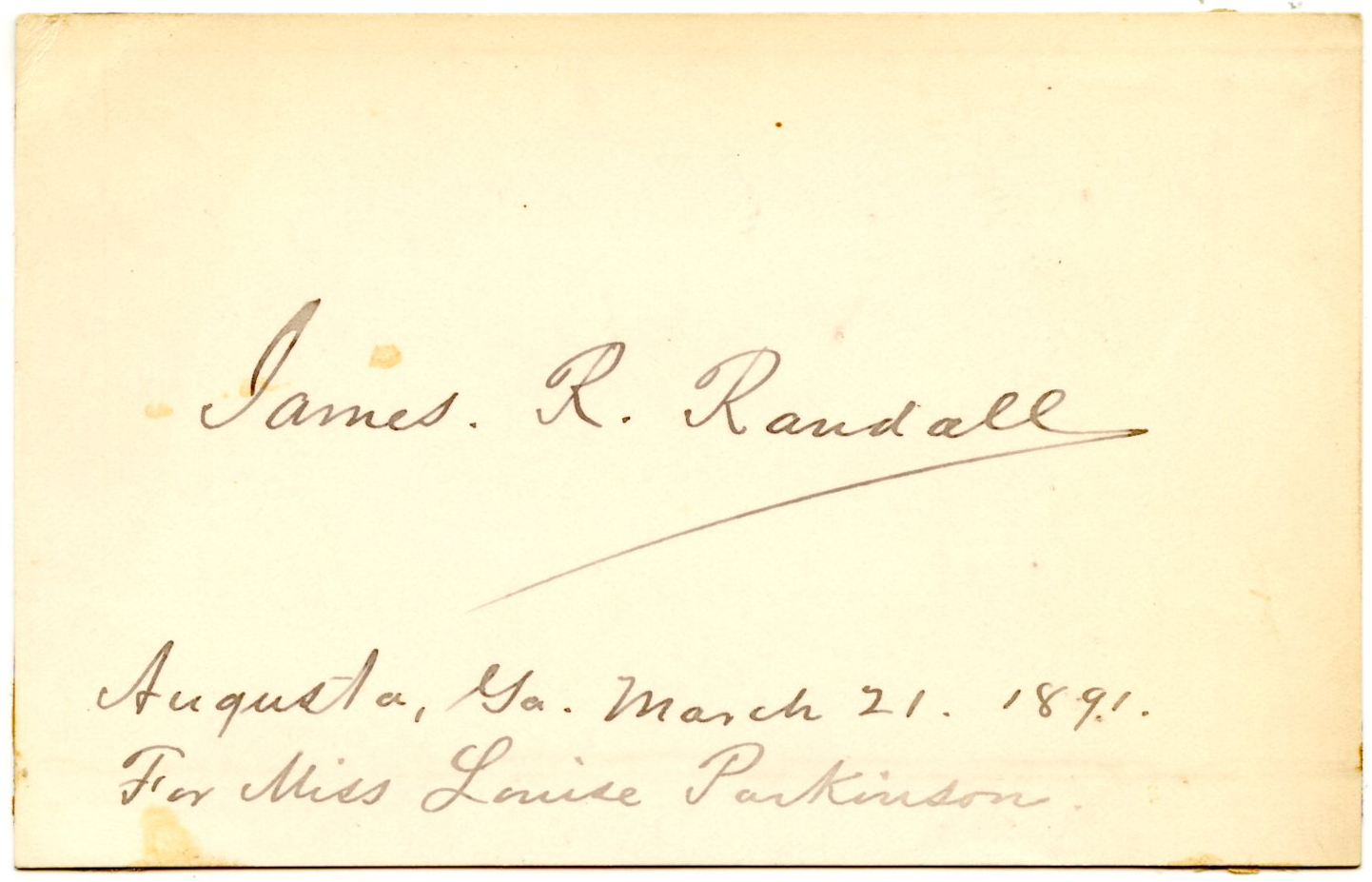
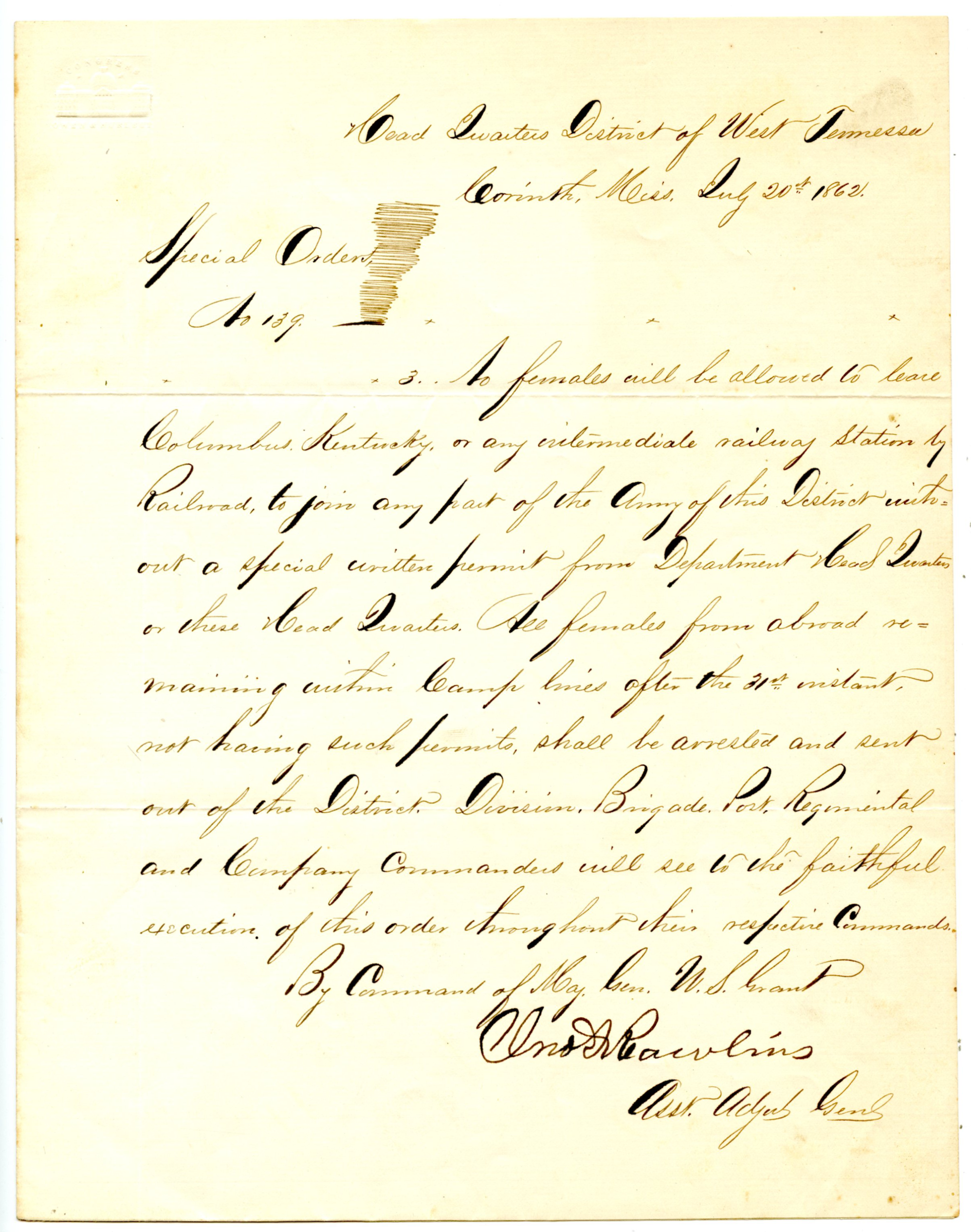
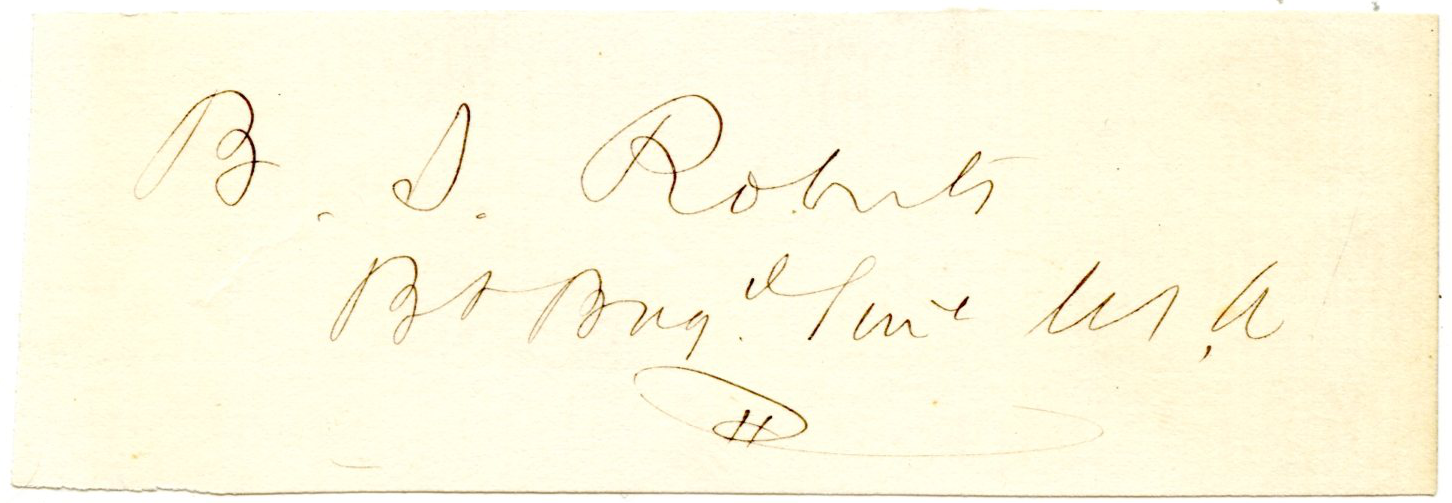
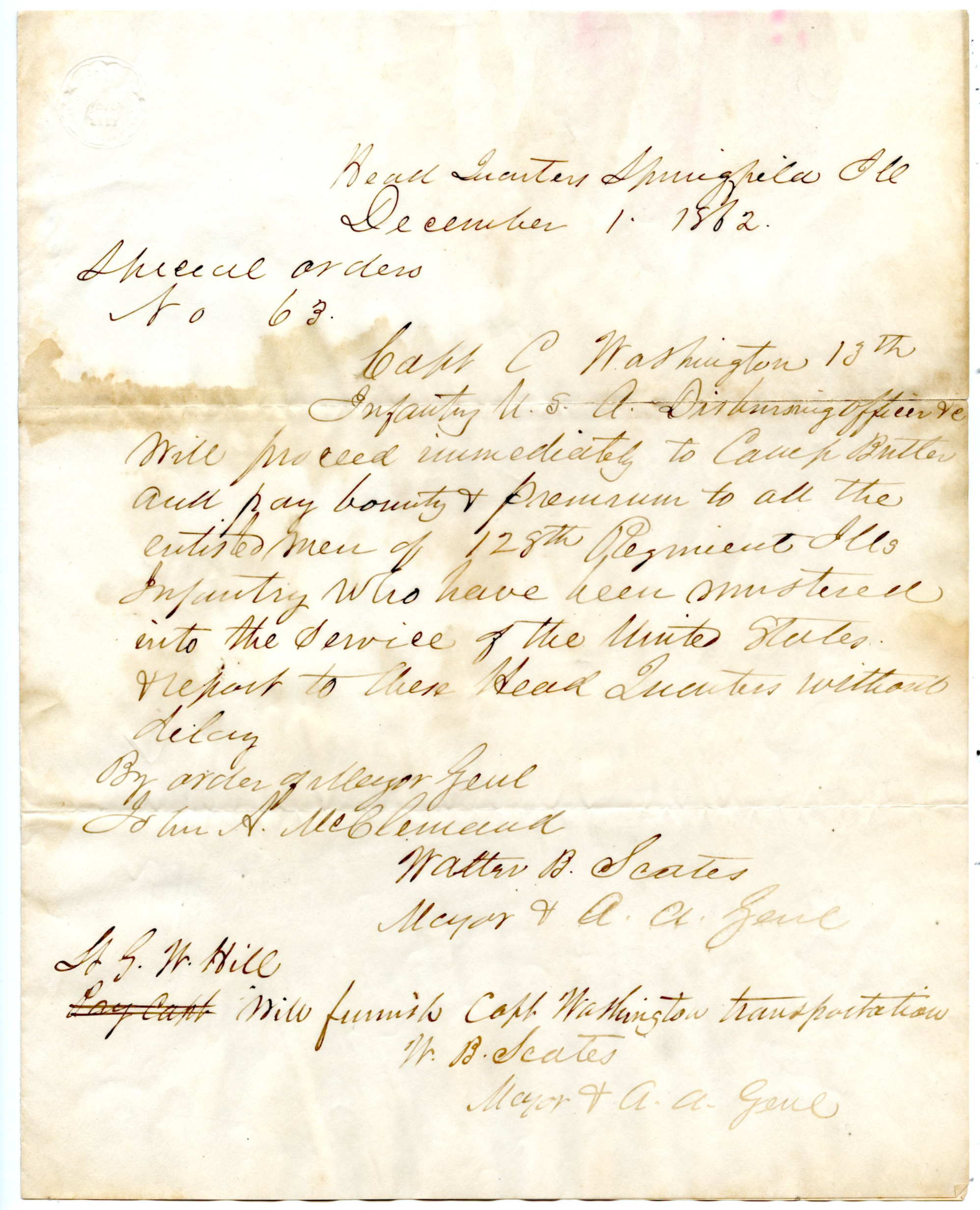
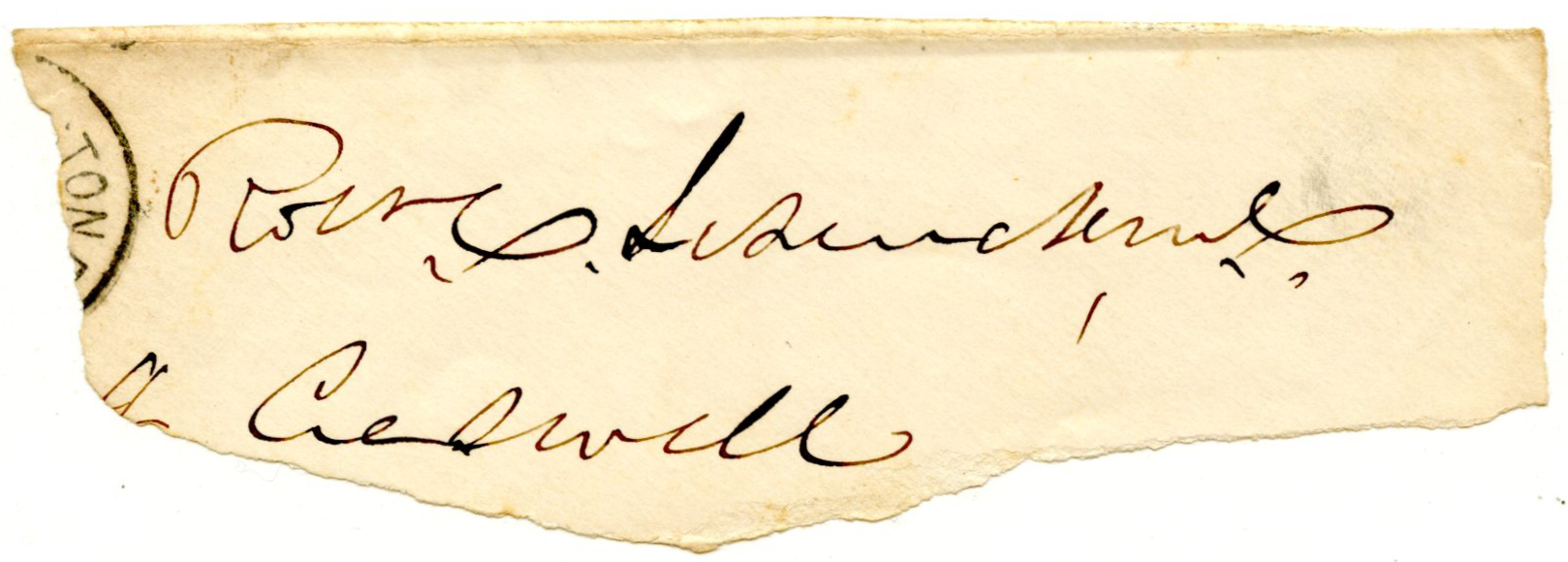

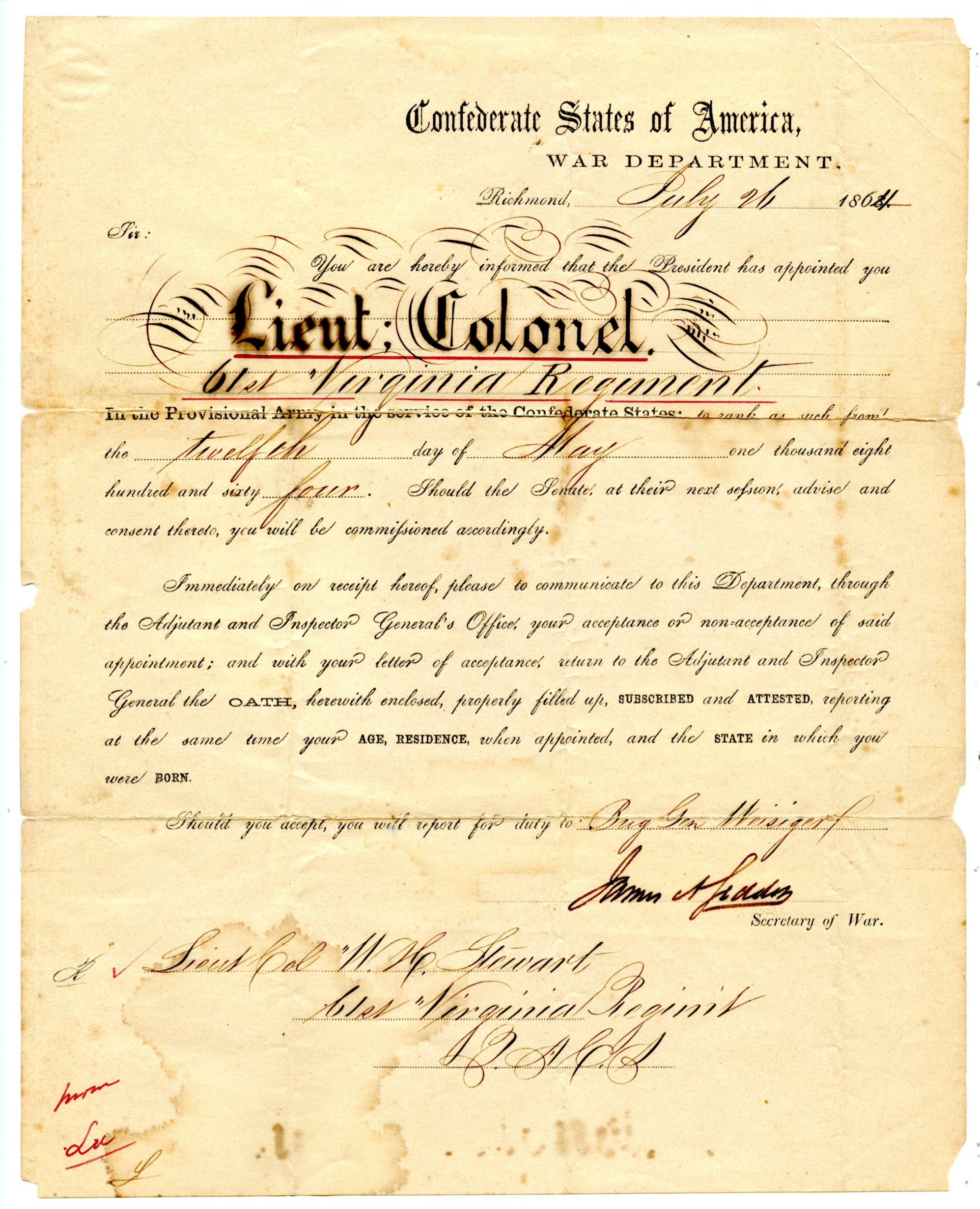
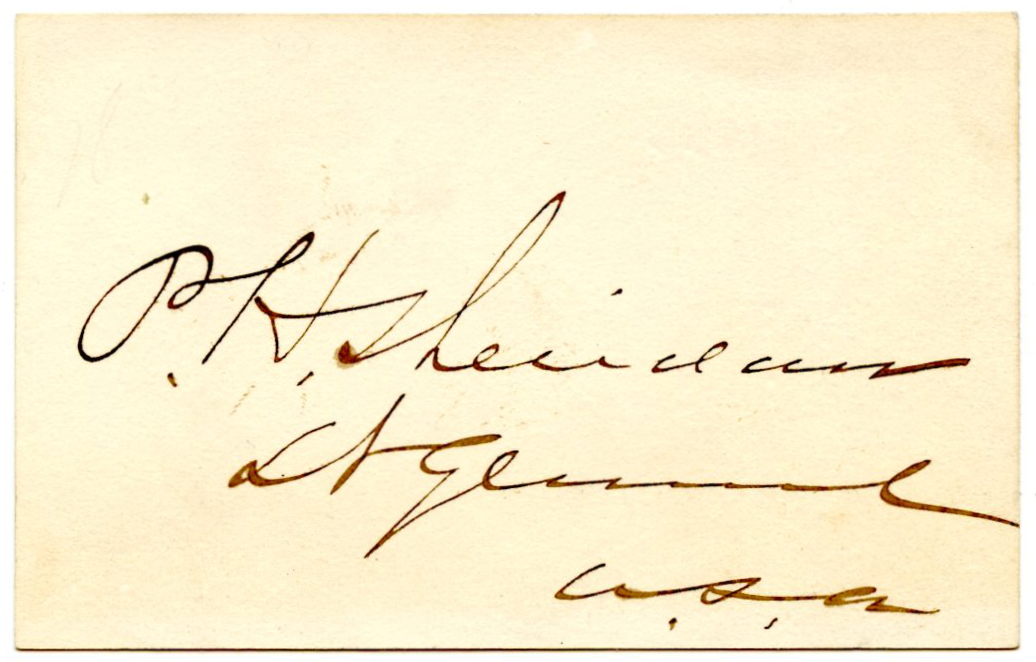
-1995.png)
-1995.png)
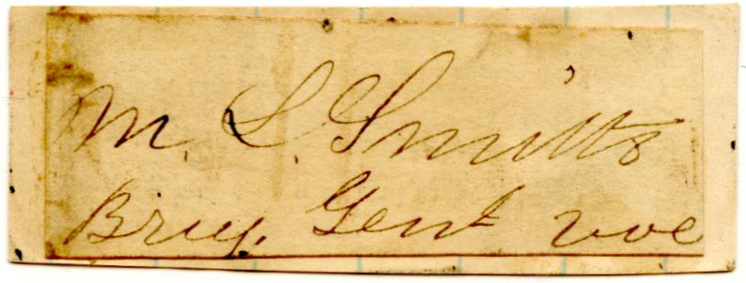
-1648.png)
-1663.png)
